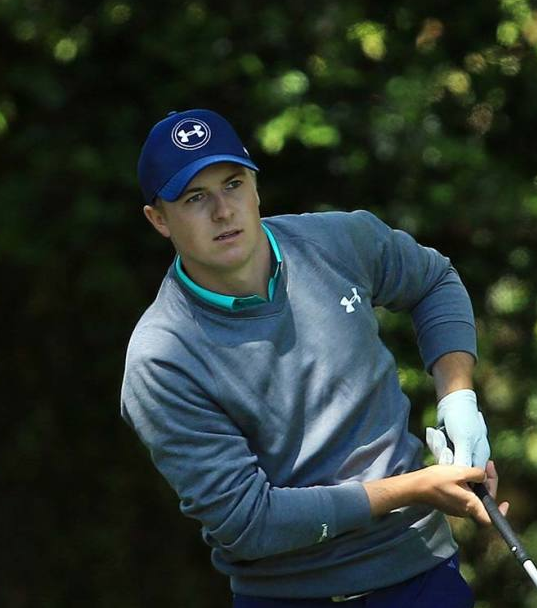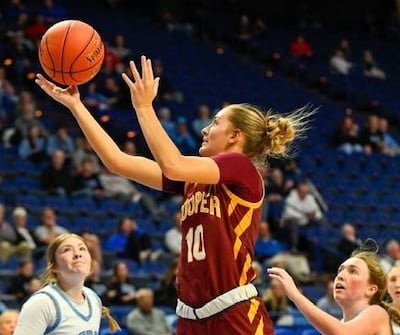The golf world is just now beginning to come to terms with Jordan Spieth’s historic meltdown on the final day of the 2016 Masters. Surely even the monks in Tibet know the story by now. Leading by five with nine holes to play, Superman turned into Clark Kent.
Back-to-back bogies on No. 10 and No. 11 were only previews of coming attractions. On the par-three 12th, the signature hole at Augusta, Spieth splashed two balls into Rae’s Creek and was lucky to stagger away with a quadruple-bogey seven, the first of his still-young pro career.
That put somebody named Danny Willett into the lead, and he managed to get home without messing up to claim the green jacket. In what was surely one of the most awkward moments in sports history, Spieth, as the defending Masters champ, had to help Willett put on the green jacket.
So what happened?

Spieth said that after the back-to-back bogies, he got fast with his tempo instead of taking a deep breath. A few years ago, Jack Nicklaus addressed this very issue.
“It’s just harder to work on your rhythm and tempo when you have the lead,” he said. “The pressure is on you to continue to play well. Going into the last round with a six-shot lead, you may not like the feeling in your stomach. That’s the way nerves work on people.”
Since Nicklaus won a record 18 majors and was runner-up 19 other times, Spieth would do well to commit that bit of wisdom to memory. Nerves and the mind are about 90 per cent of the game at golf’s highest levels.
At least, nobody at Augsta National called Spieth a “choker.” To his face, at least. As he completed his round and hustled off the 18th green, the gallery gave him a rousing and heartfelt ovation.
Only in golf, particularly at the Masters, is it like that. If Spieth were an NFL place-kicker who had blown a game-winning field goal, he would have been called “choker” and worse. It’s the same for a relief pitcher who blows a save or a basketball player who misses clutch free throws.
But golf in general, and Augusta National in particular, are the last bastions of civility and sportsmanship in a world growing increasingly ugly. I liked that as much as I like the way Spieth handled himself with the media. No excuses, no whining. He took responsibility.
Perhaps because golf is an individual sport where players have nowhere to run or hide, we tend to remember and revere players almost as much for their failures as their successes.
Golf fans love Phil Mickelson as much for all his near-misses in the U.S. Open as for his victories in the other three majors. It was the same for Sam Snead, who never won the Open. His best chance came in 1939 at the Philadelphia Country Club, where he needed only a par-five to win but instead blew up to an eight.
Every golf fan has his or her favorite blowup story.
In the 1966 Open at the Olympic Club in San Francisco, Arnold Palmer had a seven-shot lead with nine holes remaining. But instead of going conservative, Palmer decided to go for the Open record by remaining true to his trademark aggressive style.
All that got him was a four-over score on the back nine that put him in playoff, which Billy Casper won. Maybe that disheartened Palmer, and maybe it didn’t, but he never again won a major championship.
And then there was the 1978 PGA Championship at Oakmont near Pittsburgh, when Tom Watson blew a five-shot lead on the final nine, putting him in a playoff with John Mahaffey and Jerry Pate. Mahaffey won the playoff and Watson never won the PGA.
Perhaps no golfer in history got less from his talent than Greg Norman. He captured only two majors, the British Open in 1986 and 1993, but had fantastic chances in scores of others. In 1986, he invented what came to be called the “Norman Slam.” He had the lead after 54 holes of every major, but could close the deal only in the British Open.
Norman’s last historic collapse came in the 1996 Masters, when he blew a six-shot lead on the final day, opening the way for Nick Faldo to win.
At this point, I’m sure the bad memories are too fresh and the wounds too his ego to raw for Spieth to take consolation in the fact that he’s hardly the first player to blow a major. That realization will come with time and a victory in another major, the sooner the better.
And there will be other majors for Spieth. Lots of them. If he’s the kind of guy he seems to be, I think his meltdown Sunday will make him a better player and person. It should teach him to never take his skill for granted. It should teach him a little humility, which golf teaches more than just about any other sport.
But you can bet he won’t become another Dick Metz.
In the 1938 U.S. Open at Cherry Hills in Denver, Metz had a five-shot lead going into the final round. He was such a handsome fellow, according to golf historian Dan Jenkins, that a Hollywood producer promised him a contract if he won the national championship.
Alas for poor Metz, who may have been thinking about co-starring with Jean Harlow, he shot 79 in the final round to open the way for Ralph Guidahl to win his second consecutive Open.
For the next several years, a guy who blew a big lead was said to have “Dick Metzed it.”
Billy Reed is a member of the U.S. Basketball Writers Hall of Fame, the Kentucky Journalism Hall of Fame, the Kentucky Athletic Hall of Fame and the Transylvania University Hall of Fame. He has been named Kentucky Sports Writer of the Year eight times and has won the Eclipse Award twice. Reed has written about a multitude of sports events for over four decades, but he is perhaps one of media’s most knowledgeable writers on the Kentucky Derby


















